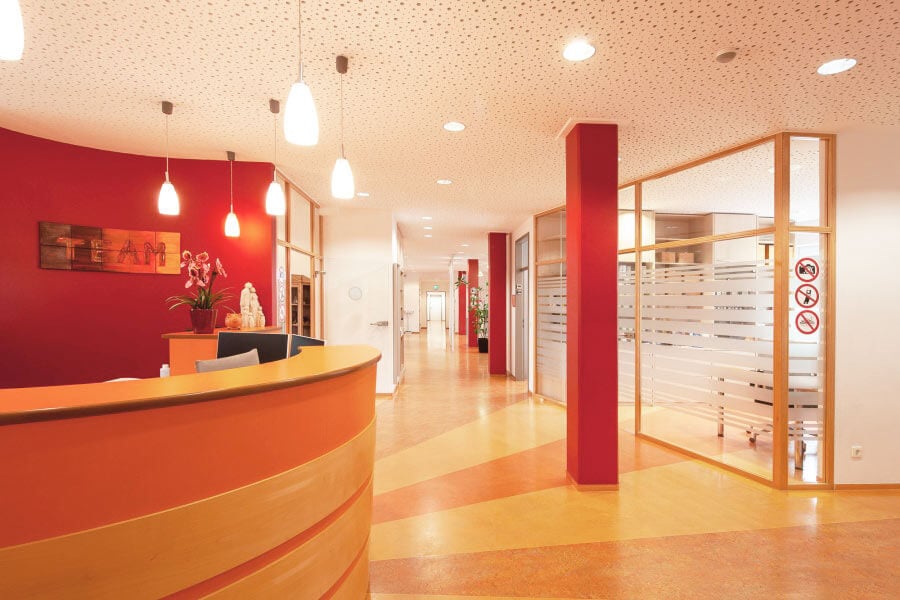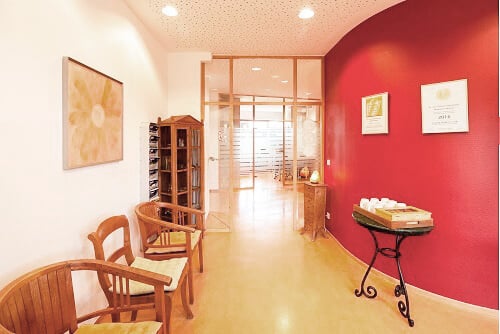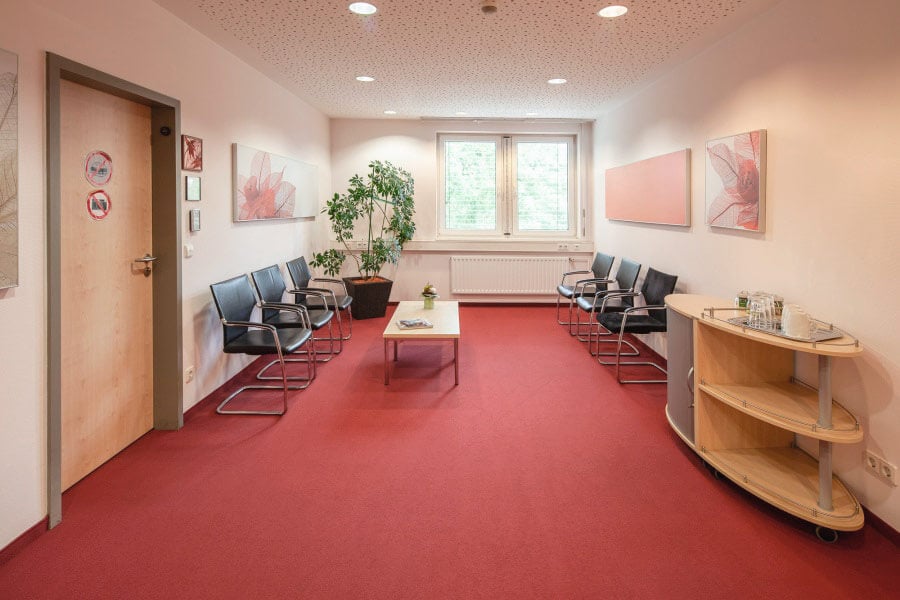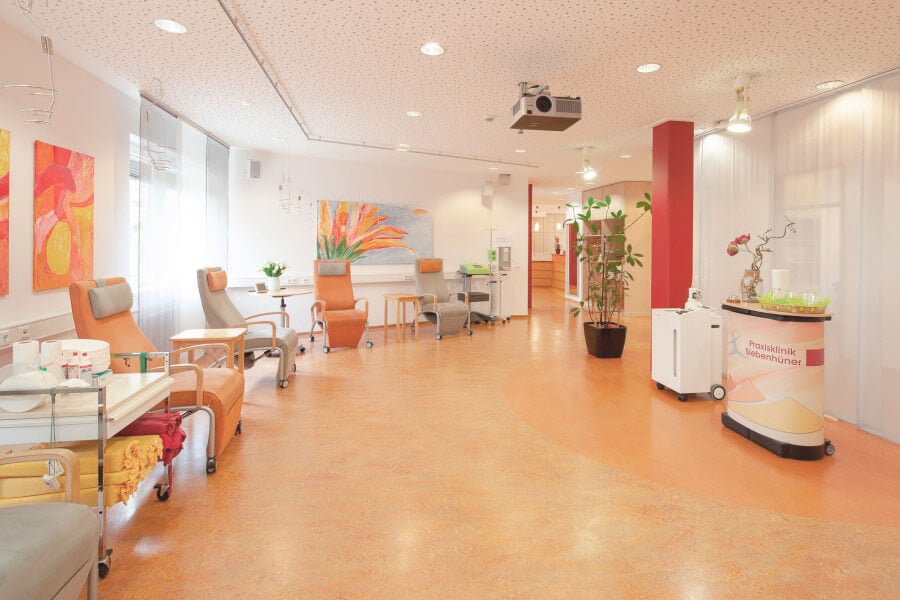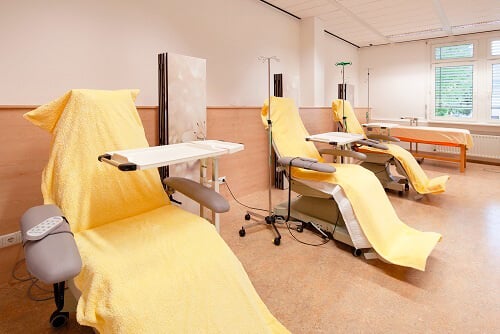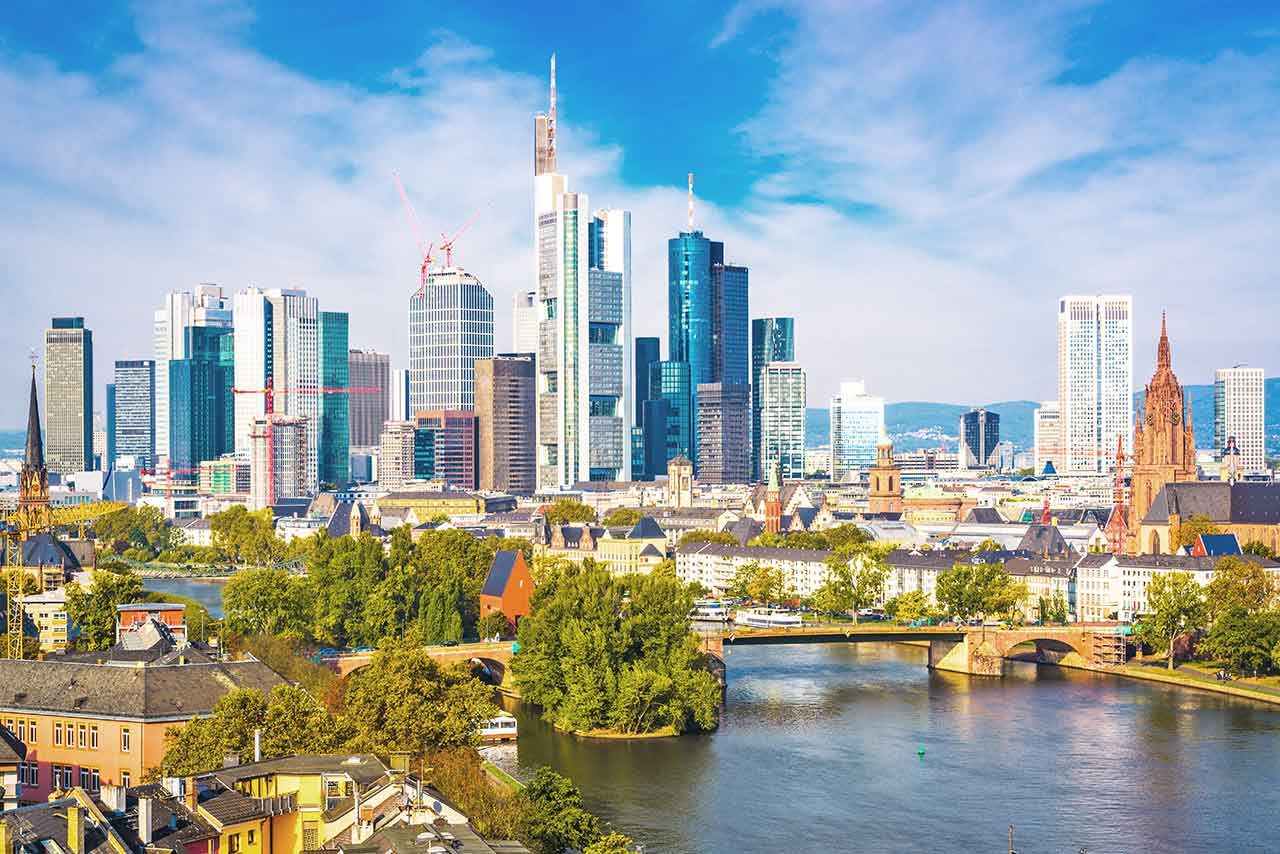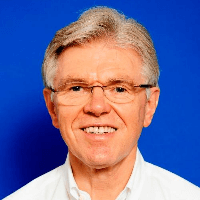
The program includes:
- Initial presentation in the clinic
- clinical history taking
- physical examination
- review of medical records
- laboratory tests:
- complete blood count
- biochemical analysis of blood
- indicators of inflammation
- indicators of blood coagulation
- stimulation therapy to increase the number of stem cells in the body
- stem cells collection with the use of intravenous anesthesia
- reimplantation of stem cells
- body fluid management
- patient observation after reimplantation
- symptomatic treatment
- control examinations
- the cost of essential medicines and materials
- nursing services
- explanation of future recommendations
How program is carried out
The essence of the method is the introduction of stem cells or substances secreted by them into the human body. For this, autologous (own) stem cells are most often used. First, the doctor must make sure that the patient does not have inflammatory processes or acute infectious diseases. These are contraindications for cell therapy. If there are no contraindications, then the patient receives a course of stem cell injections according to a certain scheme, which the doctor determines depending on the treatment goals.
During the first visit, the doctor conducts a clinical examination, goes through the results of previous diagnostic procedures, and prescribes the necessary additional examinations. After a comprehensive assessment of your health condition, you will undergo stimulation therapy. This is the injection of drugs that increase the number of active stem cells in the body.
After this, stem cells are harvested. Most often these are autologous stem cells of adipose tissue or blood. The obtained stem cells are processed with stimulating substances and cultivated in the laboratory. This allows to additionally increase their number and the effectiveness of the procedure.
The final stage of therapy is the introduction of stem cells using intravenous infusion or local injections, symptomatic therapy, and subsequent medical follow-up.
The therapeutic effect develops in three phases:
- Immediately after the course of injections, you will feel a significant improvement in your health condition.
- In a few days, the body's defenses are activated, and its resources are used for the regeneration of damaged tissues. This may be accompanied by certain discomfort, i.e. fatigue, exacerbation of the symptoms of the main condition. Discomfort disappears in approximately 2 weeks from the start of cell therapy.
- A month later, the regeneration phase begins, which lasts up to 6 months. Your condition will gradually improve. The maximum effect of the therapy is usually observed in 4-6 months after the course of injections. Treatment results last for several years. The exact prognosis depends on the purpose of cell therapy, the clinical course of the disease, your age, individual characteristics of the organism, concomitant treatment, and other factors.
Required documents
- Medical records
- Brain MRI (if available)
Service
You may also book:
 BookingHealth Price from:
BookingHealth Price from:
About the department
The Department of Alternative Medicine at the Clinic of Advanced Biological Medicine Frankfurt am Main specializes in the treatment of various types of cancer and chronic diseases using the methods of integrative medicine. The department belongs to few medical facilities in Germany, which offer individual treatment regimens using biological and integrative techniques. The department has state-of-the-art medical technologies, as well as a multidisciplinary team of competent specialists in various medical fields, including therapists, oncologists, gynecologists, urologists, orthopedists, nephrologists, surgeons, cardiologists and others. In addition, the department has a pleasant and friendly atmosphere. The department is headed by Dr. med. Gerhard Siebenhüner.
The key focus of the department's clinical practice is the use of alternative therapies for cancer treatment. The alternative methods of cancer treatment are called complementary medicine and are used as supportive or additional methods of classical medicine. The principle of therapy is based on the activation of the body's own defenses, which allows it to independently cope with cancer and compensate for the shortcomings of the classic treatment methods of cancer.
For more than 40 years, the department's specialists have been successfully fighting against cancer, relying on complex therapy. At the same time, their goal is to strengthen or restore the patient’s immune system, increase the effectiveness of classical treatment methods (surgery, chemotherapy, radiation therapy), prevent the recurrence of the disease or tumor metastasis, alleviate side effects of traditional therapies and improve the patient's quality of life.
Thanks to the biological methods added to classical medicine, the comprehensive therapy stimulates the healing process and allows the doctors to achieve stable treatment results.
It is worth noting that the department's doctors use not only alternative cancer treatment methods, but also classical chemotherapy, as well as supplement classical medicine with biological treatment methods.
The comprehensive treatment program is individually adapted to each patient and consists of the following key elements:
- Insulin potentiated therapy (IPT). Insulin potentiation therapy (IPT) is a sparing treatment method for cancer patients, which is often combined with classical chemotherapy. Due to the combination of these techniques, IPT minimizes the side effects of cytostatic drugs and at the same time increases their effectiveness. Thanks to this, lower doses of chemotherapy drugs can be used. The action of cytostatics is aimed at inhibiting uncontrolled cell division, and it also affects the body's own cells. Such side effects of chemotherapy as hair loss, nausea and vomiting are associated with this. The reduction of the dosage of drugs, can minimize unwanted side effects.
- Photodynamic therapy (PDT). Photodynamic therapy is an innovative and promising treatment method, which is used for destruction of cancer cells. The patient is firstly administered photosensitizers, which increase the sensitivity of the neoplasm to light. The photosensitizer selectively accumulates in the pathological cells, which are further destroyed by the action of light radiation. Since PDT practically does not adversely affect the healthy cells, it can be used for tumors of various localization.
- Galvanotherapy. Galvanotherapy is also known as percutaneous electrochemical therapy. It was developed thanks to the achievements of Italian biophysicist L. Galvani. The malignancy tissues are affected by weak direct electric current. The resistance of atypical cells is lower than the resistance of the healthy ones, so their electrical conductivity is higher than in the healthy tissues. Galvanotherapy uses right this physical and chemical property. During the procedure, the adjacent healthy tissues are not damaged due to the higher resistance to electricity.
Biological therapy is used in the department not just as an alternative method, but as an important component of cancer treatment. The natural biological reactions are of primary importance both in the prevention of tumors and in the treatment of already developed malignancies. Although classical chemotherapy is aimed at the destruction of cancer cells, it also affects healthy cells, because cytotoxic substances cannot detect them. In combination with biological therapy, the classical methods can be applied more precisely, using lower dosages of drugs. The damage to healthy cells and side effects are usually minimized, and therefore the patient tolerates the treatment quite easily.
The effectiveness of natural therapies has already been proven by numerous clinics around the world. Thanks to this, many doctors combine biological therapy with classical methods. It can be used in the treatment of breast, lung, prostate, pancreatic, bowel, rectal, liver, spleen, stomach, bladder cancers, skin cancer, uterine and cervical cancer, ovarian cancer, brain cancer, Hodgkin's lymphomas, non-Hodgkin's lymphomas and other types of malignancies.
The causes of cancer are very diverse, so the treatment program is individually adapted to each patient. Thanks to the very latest examination methods, the patients receive individual and targeted treatment. According to the results of laboratory tests, the therapeutic regimens with minimal side effects are developed. In addition, the patients undergo a chemosensitivity test, which allows the doctor to determine the most effective medical chemotherapy agent or alternative biological antitumor drug. During the treatment, the team of doctors continuously monitors the effectiveness of treatment using standardized laboratory indicators. The diagnostics can also detect the most vulnerable organs, organ systems or processes. Infusion therapy is carried out to correct disorders, including by means of the technique developed by Dr. Siebenhüner.
To treat cancer, the department applies various types of infusion therapy. Some infusion solutions have been developed personally by Dr. Siebenhüner. According to the results of laboratory tests, the priority processes are determined, the correction of which is carried out by means of drugs. In clinical practice, the following types of infusions are effectively used:
- Artesunate. An infusion solution, which is extracted from wormwood leaves/flowers and has controlled side effects, does not cause discomfort to the patient. Artesunate is effective against all types of cancer. The researches of the Heidelberg University have shown that the treatment using artesunate has reduced tumor size.
- Amygdalin. Amygdalin can be specified as a natural chemotherapy agent due to its principle of action. It also has an analgesic effect.
- Chlorine E6. The photosensitizer Chlorine E6 is synthesized from green сhlorella (Chlorella ellipsoidea Alge) and is used in photodynamic therapy (PDT) – one of the most effective methods of alternative treatment for malignanсies. The peculiarity of Chlorine E6 is in its high absorption of light in the red spectrum, as well as in its specific molecular properties, due to which it is actively absorbed by malignant tumors.
- Curcumin. Thanks to its antioxidant, anti-inflammatory, antiseptic, analgesic and anti-cancer properties, cumin infusion solution is used in the treatment of bronchitis and asthma, allergies, liver diseases, rheumatism, upper respiratory tract infections, poorly healing wounds in diabetes mellitus and cancer. In India, where turmeric is a traditional spice, the incidence of lung, prostate and colon cancer is 10 times lower than in the United States. According to many experts, the reason for this is curcumin.
- Sodium dichloroacetate (DCA). This is an agent that has been used to correct lactic acidosis for many years, but its use as a drug is not authorized by the FDA. DCA is involved into metabolism of pathological cells and causes their programmed death, so it has recently been used for the treatment of cancer.
- Dimethyl sulfoxide. The most important property of dimethyl sulfoxide (DMSO) is the bipolar structure, which allows it to penetrate through membranes and reach the cell nucleus. Pharmaceutics uses the physical properties of DMSO for its targeted use. In addition, DMSO binds and neutralizes free radicals, which are subsequently excreted through the kidneys. At the cellular level, DMSO promotes cell detoxification, has anti-inflammatory effect, strengthens the immune system and inhibits the growth of bacteria. DMSO, as well as DCA, has a positive effect on mitochondria.
- Hypericin. The infusion solution, which is synthesized from St. John's wort (lat. Hypericum perforatum) and is an effective natural photosensitizer. Hypericin is used in the photodynamic therapy (PDT) for cancer.
- High doses of vitamin C. To destruct cancer cells, the department uses antioxidant properties of high doses of vitamin C, which destroy pathological cells and do not negatively affect healthy ones. This method is called "biological chemotherapy." In large hospitals in the United States of America, classical chemotherapy is combined with the use of high doses of vitamin C. The reason for prescription of this therapy is the presence of a high level of the G6PDH enzyme in the patient's blood. The specialists of the hospital carry out blood test for the G6PDH enzyme within the in-house laboratory prior to treatment.
- GcMAF therapy. GcMAF therapy (Gc macrophage activating factors) is a type of immunotherapy, which is often used for the cancer treatment. GcMAF activates the immune system, helps the body to detect abnormal cells and destroy them on its own.
The special attention should be paid to hyperthermia, which is an auxiliary cancer treatment that increases the effectiveness of such classical methods as chemotherapy and radiation therapy. The efficiency of the therapeutic effect enhances due to an increase in the temperature of cancer cells. The therapeutic hyperthermia includes all methods of targeted, controllable heating of body parts.
Hyperthermia treatment – heat against cancer. In 1910, hyperthermia was described as a method for the treatment of cancer, and in the 60s it was discovered again in the form of the whole body hyperthermia. During this time, the methodology and hardware technologies have been significantly modified, so, nowadays, they are used in the department with higher efficiency. The concept of "hyperthermia", which in Greek means "overheating", describes the essence of the method. The cancer cells are more susceptible to heat than the healthy tissue. As a result, hyperthermia not only destroys cancer cells, but also improves the blood supply to tumors, making them more sensitive to drugs and radiation. As a rule, hyperthermia is combined with chemo and/or radiation therapy. In this case, the dosage of cytostatic agents can be reduced in comparison with standard protocols. Hyperthermia also reduces the ability of damaged cancer cells to recover. Due to this, the effect of radiation therapy is increased. In addition, tumors that were previously resistant to chemotherapy and radiation therapy after hyperthermia sessions can respond to these treatment methods again. Such side effects as hair loss and nausea, as well as related physical and psychological symptoms, are significantly reduced in patients.
The principle of action of hyperthermia is to block the regenerative function of cancer cells. Chemotherapy and radiation therapy damage their genome, after which restorative enzymes try to eliminate this harm. At the temperatures above 40°C, enzymes cease to fulfill their function, due to which damaged cancer cells die. The department specializes in local hyperthermia, prostate hyperthermia and whole body hyperthermia.
In order to obtain good result after hyperthermia session, it is necessary to achieve uniform heating of the entire tumor. At the temperature above 40°C, heat shock proteins are synthesized in the body, which activate the immune system, including anti-cancer immunity. In addition, heat shock proteins label cancer cells, which makes them more recognizable for the killer cells of the immune system. At the temperature above 42°C, the process of apoptosis (programmed cell death) starts in cancer cells and they die. The radiation-resistant atypical cells are usually susceptible to heat.
The next therapeutic offer of the department is the treatment using Regeneresen drug. The comprehensive therapy with Regeneresen drugs, developed by Prof. Dr. med. Dyckerhoff, is the appointment of active animal ribonucleic acids (RNA) and ribonucleic acids from yeast. Regeneresen drugs with nucleic acids have a positive effect on metabolic processes, the function of the immune and hormonal systems, and also stimulate the formation of own DNA.
RNA drugs obtained from bovine serum or yeast have already been used for decades. Ribonucleic acids play a key role in protein synthesis. On the one side, it is a carrier of information on the protein structure, on the other hand, it is a building material for cellular structures, as well as a tool for protein biosynthesis. The recent studies show the participation of low-molecular nucleic acids in the modulation of protein synthesis.
What is Regeneresen®? The drug consists of biologically active ribonucleic acids. The active substance is excreted from the organs of cattle and from yeast. The result is pure sodium salt of ribonucleic acids (RNA-Na). The treatment program is based on the use of nucleic acids, obtained from different organs, interrelated to each other using orthomolecular substances. In the form of Regeneresen, RNAs encoding special proteins or containing information about the affected organs or organ systems can be administered into the body. The drugs help to restore the impaired processes of cellular metabolism, and are also used in the comprehensive treatment of chronic and degenerative diseases. An additional effect of Regeneresen therapy is the reduction of the risk of allergies and enhancement of resistance to infections due to increased immunity. Thanks to obtaining RNA from various organs, the drug has a wide range of applications. Regeneresen is indicated in such diseases as degenerative and chronic diseases, arthrosis, cardiovascular diseases, circulatory disorders, immune disorders, liver diseases, neurological disorders, skin diseases, dementia, intervertebral disc injuries, tinnitus and ophthalmic diseases.
The department's competence also includes the regenerative therapy. The effectiveness of this type of therapy in chronic and degenerative diseases is due to the fact that it eliminates the causes of the pathology, but not just the symptoms. The department has a wide range of revitalization and regenerative procedures, which are aimed at the mobilization of the body's own forces. With the help of injections and other treatment methods, the doctors stimulate the work of individual organs. This allows to carry out targeted therapy of chronic diseases.
The department successfully applies regenerative therapy for the treatment of the following chronic diseases:
- Arthrosis. Photodynamic laser therapy allows to treat arthrosis of large and small joints. It helps reduce pain, improves joint mobility and stimulates recovery of the muscles. The technique is used in knee, hip, ankle arthrosis, chronic shoulder instability, hallux valgus.
- Hydrocolonotherapy. The department uses modern hydrocolonotherapy, in which the colon is washed with heated water. The specially trained staff carries out cleaning of the intestine. A natural intestinal peristalsis is restored after the treatment, as well as residual feces are removed from it.
- Eye acupuncture. The biologically active points of the periorbital region are stimulated by means of eye acupuncture, which is borrowed from traditional Chinese medicine. The acute conjunctivitis, retinal inflammation (retinitis), macular degeneration, iris inflammation and dry eye syndrome are treated with this technique.
- Ozone-oxygen therapy. Ozone is active oxygen. The department's specialists inject specially prepared ozone intramuscularly, subcutaneously or intravenously. It helps to restore liver function, normalizes lipid profile, and also stimulates intracellular metabolism, improves blood circulation, prevents the formation of blood clots and protects the body from pathogenic bacteria, viruses and fungi.
- Oxygen therapy. The department carries out intravenous oxygen therapy according to the time-proved system of Dr. med. Regelsberger. Oxygen therapy eliminates many symptoms and can be used to normalize blood pressure, eliminate migraines, treat allergies, chronic sinusitis, bronchial asthma, etc.
- Apheresis. Apheresis is an innovative blood purification method, which removes toxins and inflammatory mediators from plasma. The apheresis procedure is similar to dialysis, but it filters and purifies blood in different manner.
The department offers the following types of regenerative therapy:
- Detoxification. The department has many methods for individually adapted detoxification. Hydrocolonotherapy (mild purgation) is the basis of detoxification. The procedure is used in the comprehensive treatment of infectious pathologies, rheumatism, neurodermatitis, acne, migraine, allergies, dermatological diseases, dyspepsia, depression and anemia, as well as cancer.
- Deacidification. Decrease of blood pH reduces the manifestations of atherosclerosis, spinal disc herniation, arterial hypertension, depression, diabetes mellitus, alopecia, caries, neurodermatitis, irritable bowel syndrome, plantar hyperhidrosis, facial wrinkles, obesity and cellulite.
- Special diet. The goal of various diets is to stimulate self-recovery of the patient's body and slow down the growth of atypical cells. These include Johanna Budwig diet, Gerson diet, ketogenic diet, Breuss diet.
- Psycho-oncology. The goal of psycho-oncology is to help the patient cope with the emotional stress caused by the long course of cancer.
The department performs an apheresis procedure (an innovative method of blood purification). During apheresis, the patient's blood serum is purified of toxic or inflammatory components. Apheresis is similar to dialysis, but purifies the blood in a different manner. The procedure is characterized by good tolerance (can be performed on an outpatient basis) and has a pronounced effect on the general health.
In apheresis, blood sampling is performed through venous access, using anticoagulants. Then the blood components (plasma and formed elements) are separated from each other. For this purpose, the special membrane-type plasma separators are used. Plasma is purified with the help of filters and sorbents, after which it is combined with the solid components of the blood (red blood cells, white blood cells and platelets) and returned to the patient's body. The therapeutic effect of apheresis is the selective removal of toxic substances and pathogens. The blood purification restores the normal course of most physiological processes in the body.
Apheresis is used for rheumatic pathologies, lipid metabolism disorders, chronic and acute immune system diseases, borreliosis, autoimmune diseases, heavy metal pollution, diabetic foot (resistant to other types of therapy), age-related macular degeneration, sharp hearing loss, multiple sclerosis, ulcerative colitis, Crohn's disease, dilated cardiomyopathy and other pathologies.
Apheresis is carried out in various manners, which are selected depending on the particular clinical case. For example, plasmapheresis can be used in the treatment of autoimmune diseases, during which the plasma is separated from the blood cells, passed through special filter separators and injected back through another venous access. The procedure for nonspecific plasmapheresis is carried out in a different manner. In this case, the separated blood plasma is removed, and the complex substitute is used instead. Apheresis is a safe procedure, which does not affect electrolyte metabolism and does not suppress immunity.
The department's service range complements the treatment with stem cells. The human body has a certain number of ordinary cells and stem cells, which during the process of ontogenesis can form any cells or tissues. With age, the stem cell reserve is depleted, which explains the progression of many chronic diseases.
The most obvious example of the quality work of the body at the cellular level is the bone fracture at 10 and 60 years old. If in the first case the bone fuses in 1-1.5 months, then in the second it may take several years.
Stem cells are the precursors of all cells in our body, without exception. They are able to form specialized cells that make up muscular, epithelial, nervous and connective tissue. The specialization of stem cells depends on the conditions of their cultivation.
The stem cell can be used to treat various diseases and conditions associated with lesion of the internal organs, connective tissue, nervous system, endocrine glands.
Here is a list of pathologies, in which it is advisable to apply this treatment method:
| Immunodeficiencies |
| Cardiovascular pathologies (coronary heart disease, myocardial infarction) |
| Atherosclerosis of the vessels of the brain and limbs |
| Stroke |
| Coma |
| Multiple sclerosis |
| Alzheimer's disease |
| Parkinson's disease |
| Autism |
| Oncopathology (in combination with other methods to improve treatment tolerance, effectiveness of chemotherapy and achieve more persistent remission) |
| Osteoporosis |
| Arthritis |
| Spinal pathology (spinal disc herniation, osteochondrosis) |
| Decreased activity of endocrine glands |
| Diabetes mellitus and its complications (neuropathy, micro- and macroangiopathies) |
| Erectile dysfunction |
| Allergic diseases |
| Kidney pathology |
| Chronic diseases of the gastrointestinal tract |
| Other diseases |
Cell therapy is used not only for the treatment of diseases. It has been successfully used to increase the body tone in the case of asthenic syndrome, stimulate immunity, accelerate recovery from injuries, operations and serious diseases, prevent premature aging, increase mental performance (in the first signs of decreased cognitive functions), in depression, burnout syndrome, mental exhaustion, in women – to restore the normal menstrual cycle or eliminate symptoms of menopause, etc.
Cell therapy has an extensive evidence base, which confirms its effectiveness. There are being constantly developed new directions, in which this innovative treatment method can be used.
It is worth noting that cell therapy is absolutely safe treatment method. The contraindications to its prescription are only inflammatory processes in the acute phase and acute infectious diseases. However, this type of treatment may have some side effects, for example, redness at the injection area, which disappears within 1-3 days, weakness during the first 2 weeks after injection, exacerbation of symptoms of chronic pathology, fever during the first days of therapy (in this case, the person should visit a doctor).
Cell therapy has no irreversible or delayed side effects. This is due to the fact that the patient’s own cells are used for treatment.
During the preparation for stem cell treatment, the doctors carry out a special drug therapy, which allows the doctors to increase the number of active stem cells in the body. It is based on the use of drugs of natural origin and is absolutely safe.
On the first day, the patient undergoes a detailed diagnostic examination. According to its results, the doctor selects the optimal therapeutic technique and explains the patient its specificities in detail.
Depending on the selected technique, on the second day, stem cells are extracted from the bone marrow (using iliac crest puncture) or adipose tissue.
Within the specialized laboratory, the doctors extract stem cells from the patient's bone marrow and examine them for HIV, cytomegalovirus, hepatitis C and B. After this, the number of obtained stem cells is counted and their viability is assessed.
If the suspension meets all the requirements, it is considered suitable for reimplantation – the next stage of stem cell therapy. The patented method of processing biological material guarantees its optimal quality and sterility, which ensures the best result. As a rule, reimplantation is carried out two days after the preparation of cellular material. The method of administration of stem cells into the body depends on the type of disease of the patient. For example, intravenous injection makes it possible to distribute the drug evenly throughout the body. This reimplantation technique is used in multiple sclerosis, vascular diseases, spinal cord injuries and stroke.
Angiography (administration of suspension of stem cells through a catheter into a particular organ) is a method of targeted reimplantation, which is used in the treatment of diabetes mellitus and the consequences of a heart attack.
Lumbar puncture is a technique, in which stem cells are injected into the spinal canal in the area of lumbar vertebrae. Lumbar puncture is used in the treatment of spinal cord diseases and pathologies of the spinal nerves.
In complex cases, the injection of stem cells into the affected organ requires surgical intervention. Such operations are carried out under general anesthesia, on an inpatient basis.
Curriculum vitae
Professional Career:
More than 40 years of clinical activities in his own clinic in the following fields:
- Complementary and alternative oncology.
- Chronic diseases (treatment of causes), the most effective recovery of patients, taking into account the characteristics of the body.
- Removal of harmful substances, metabolic regulation, tissue regeneration.
- Immune system normalization.
Advanced Training
- Internal Medicine.
- Complementary Oncology.
- Psychosomatic Medicine (Positive Psychotherapy).
- Phytotherapy.
- Biochemistry.
- Biomedicine.
- Physical Medicine.
- Laser Therapy.
- Dr. Mayr therapy.
- Diabetology.
- Hormone replacement therapy for both aged and cancer patients.
Advanced Training in Oncology
- German Cancer Society (DGO).
- Internship under the direction of Prof. Grönemeyer at the Bochum Institute (Hyperthermia).
- Internship at the Oncotherm company (Hyperthermia).
Special Qualifications
- Naturopathy.
- Immunology.
- All methods of hyperthermia.
- Insulin potentiated therapy (IPT).
- Chirotherapy.
- Dr. Mayr therapy.
- Dietology.
- Hormone replacement therapy for both aged and cancer patients.
Membership in Professional Societies
- German Cancer Society.
- Society for Biological Cancer Prevention.
- German Society for Hyperthermia.
- European Society for Applied Immunology.
- Society for Information and Prevention.
- International Society of Homotoxicology.
- Scientific Society of Oxygen-Ozone Therapy.
- Society of F.X.Mayr Medicine.
- Society of Experiential Medicine.
- German Society of Oxygenation.
- German Society for Thymus Therapy.
- German Academy for Chelation Therapy.
- Federal Union of Integrative Medicine.
- Society of Oncological Immunology.
- European Union of Insulin Potentiated Therapy.
Charity and Social Activities
- Custody of orphans.
- 2-time presidency in the Lions Clubs International.
- Volunteering in various social organizations.
- President of the Society for Biological Therapy of Cancer.
- Founder of Gerhard and Monika Siebenhüner Foundation.
Photo of the doctor: (c) Zentrum der Erweiterten Medizin
About hospital
The Clinic of Advanced Biological Medicine Frankfurt am Main is a unique medical facility with rich and successful experience in the application of integrative medical methods for the treatment of cancer and chronic diseases. For over 40 years, a competent interdisciplinary team of doctors has been combining traditional medicine with effective alternative types of biological therapy and naturopathy. The cutting-edge technologies in combination with scientifically proven methods of complementary medicine form new promising approaches to treatment.
In the course of treatment, the specialists of the clinic set themselves the goal of strengthening the immune system, maintaining or improving the quality of life of patients with chronic diseases, minimizing the side effects of drug therapy, increasing the chances of recovery and increasing life expectancy due to the use of effective treatment methods.
STEM CELL TREATMENT of Optic Nerve Atrophy
According to the diagnostics and individual clinical indications, each patient receives an optimal treatment regimen, which combines the most effective therapeutic methods for a particular clinical case.
The essence of advanced medicine is based on 7 fundamental principles.
The advanced medicine uses reliable and time-proven methods. It detects weak points of the organism. The holistic approach is crucial here. In addition, advanced medicine combines the methods of alternative and traditional medicine. This practice includes seven basic principles of treatment, which are based on the monitoring, as well as the examination of the patient's body and his disease. Advanced medicine involves the use of the very latest scientific methods.
The most important rule: No harm!
The disease can be useful for the human body. The traditional treatments can cure the disease, but quite often they cause opposite effect, for example, suppress the symptoms, but do not eliminate the hidden causes of the disease. With modern treatment methods, the doctors manage to avoid harmful effects on the human body.
Detection of the true origin and its elimination
The disease does not occur without a cause. Therefore, to achieve the complete recovery of the patient, it is necessary to detect and eliminate the main causes of the development of the pathological process. Symptoms are self-expression of the body, they draw attention to the health problem, but quite often they are not the actual cause of the disease. The causes can be of various nature. The doctor examines the main etiological factors in all fields and at all levels, and then develops a therapeutic approach to eliminate the cause of the disease, instead of treating only its symptoms.
The aim is not to treat, but to cure
The health and disease are opposed conditions of the body, which are in a complex dependence from many factors. The doctor who specializes in advanced medicine, considers all aspects and uses comprehensive treatment. The harmonious interaction of all physical, psychical, emotional and mental aspects is an extremely important factor for a successful recovery.
The doctor will show you the right way
The cooperation between the patient and the doctor is of particular importance during the therapeutic process. The doctor tells the patient how to recover, using his assistance and the possibilities of advanced medicine.
Prevention
Prevention is the best protection for the body. The main purpose of any medical care is the prevention of diseases. Moreover, the doctor specializing in advanced medicine considers all the peculiarities of the patient's lifestyle and habits. He detects weaknesses by means of analyzing and assessing risk factors caused by certain life circumstances of the patient. The doctor determines the correct and healthy lifestyle for the patient. It is better and safer to preserve health than to lose it and then to fight the disease.
Usу of the healing power of nature
The body has the ability to maintain a healthy state, preserve it and even restore it. The nature treats with its own vitality. The doctor's task is to support this process and eliminate potential barriers, preventing self-regeneration. Of course, in some cases, the doctor must adhere to conventional medicine, for example, if the patient requires a surgical intervention, in the presence of some bacterial infections, etc.
Activation of self-healing
The doctor recommends the patient to take responsibility for his health. He supports, motivates and stimulates self-healing. During the treatment process, symptoms may intensify, these can serve as expression of forces of patient's body, which are aimed at self-healing. Additional treatment methods, which are used in the clinic, contribute to the healing process and thus work synergistically with the methods of classical medicine.
Photo: (c) Zentrum für Erweiterte Medizin, (c) depositphotos
Accommodation in hospital
Hotel
You may stay at the hotel of your choice during the outpatient program. Our manager will help you choose the best option.
